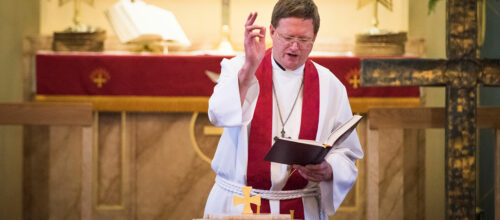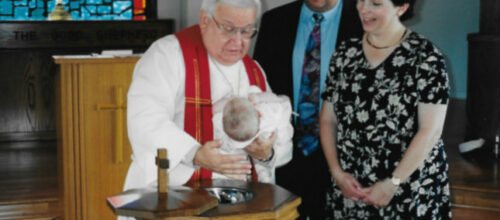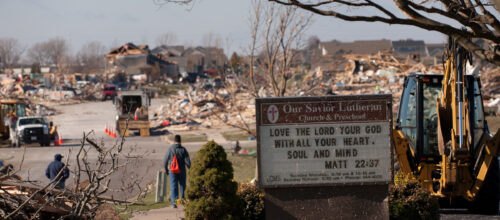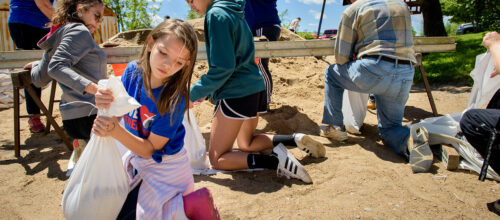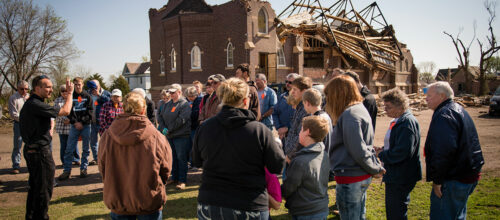Insight and perspective from LCMS leaders
Tired of waving goodbye – one of the greatest joys and struggles of church work life
Most church workers have family and friends scattered through the country. This reality contains many blessings, but honest struggle as well.
Sunday morning and the church work family
If Sunday is a "working day" for church workers and their families, where do they grab a moment of worship and rest?
Life transitions and the church work marriage
Life is full of transitions! What unique transitions exist in ministry life and marriages? How can workers build up their marriages in the face of transition?
Dear Church Worker – your identity is still your baptism
Our identity is not found in our vocations, but in Christ alone. This is a reminder we need daily in ministry life.
Heart, soul, mind and strength: The intimidation, impact and invitation of wellness
There is only so much time, energy, and money in this world and a lot pulling at our attention, particularly as workers in the church. Introducing one tool to help you grow in wellness…
PKs, church work kids, any kids and expectations
What special expectations do we have for the children of our church workers? Offering grace to all the children in our churches.
Effective Outreach, Part 4: Effective outreach provides appropriate and appealing entry points into Word and Sacrament ministry
It is up to us to provide ways into the Word and Sacrament ministry of our congregation that ease nonchurched people's fears and keep them from being intimidated.
The secret identity of a pastor’s wife
What do you wish people saw in you, or do you wish they saw if they looked beyond one title or vocation?
Effective Outreach, Part 3: Effective outreach fosters relationship-building
If we can learn to intentionally build relationships with nonchurched people, we will be meeting a tremendous need. And we’ll be opening doors to the Gospel for them.
History and Origins of the Work of LCMS World Relief and Human Care and the Development of LCMS Disaster Response
During the first 100 years of the LCMS’s history, mercy ministry exploded. “By 1928 the number of hospitals, orphanages, child welfare societies, homes for the aged and institution missions totaled
Lutheran Congregational Mercy Work
Over the last 15 years there has been a resurgence of congregational mercy work within congregations in the LCMS. Much of this was due to the guidance of the Rev. Matthew Harrison, who in his capacity as executive director of WRHC wrote to pastors and lay leaders of the LCMS on the theology of mercy and how to incorporate a mercy that flows from Lutheran congregations to the needy in their community.
A Ministry of Merciful Visitation and Pastoral Presence
Paul’s ministry was also an example of caring for people in every need. Paul gives a model for congregations and individual Christians to care for their members and for the unchurched community around them. Paul encouraged the Galatians, “Let us not grow weary of doing good … So then, as we have opportunity, let us do good to everyone, and especially to those who are of the household of faith” (Gal. 6:9–10).
Prayer During Times of Suffering and Tragedy
During a crisis people tend to turn to God and their faith for strength. During these times it is common to make supplications or petitions to God. It is a godly and pious act to pray and to bring one’s petitions to the Lord. The Large Catechism calls this “calling upon God in every need”[6] and it says, “He [God] requires this of us and has not left it to our choice.”
Effective Outreach, Part 2: Effective outreach creates connections with nonchurched people
Effective outreach is the “planting and watering” (cf. 1 Corinthians 3:5-9) through which a congregation intentionally engages nonchurched people in ways that … provide the congregation with means of continuing contact with the nonchurched people.
- Go to the previous page
- 1
- …
- 3
- 4
- 5
- 6
- 7
- 8
- 9
- …
- 20
- Go to the next page

